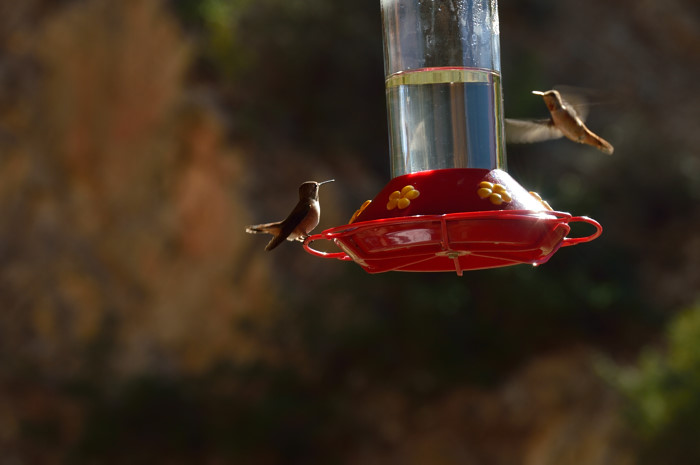Hello all,
I am a member of the Class of 2023. We recently had a training session about Dark Skies. I knew some of the information we went over. The in-depth information on hummingbirds really helped me ‘drink the nectar’ however…let me set the scene:
Hummingbirds normally feed heavily in the morning and evening around ½ an hour before sunset. Imagine me, sitting out on the front porch, rocked back in a comfy chair with an icy cold coke in my hand. Warm sunny day, just a hint of refreshing breeze, sunset in about 30. Birds chatting with each other in the background. The buzz of a little bomber zips by in an aggressive arial display, off to beat the other hummers to one of the multitudes of plastic flowers loaded with sweet sugar water.
I try to tell them they have no reason to fight, we have plenty. They never listen….
The sense of peace I gain just from imagining a scenario that has played out so many times over the years puts a smile on my face, even now. OK, back to the actual point. I did have one, someplace…
At night they go into Torpor (basically a super deep sleep).
Torpor helps hummingbirds in a vast majority of ways:
- lowers metabolism to 1/15 of normal.
- Drops body temperature.
- Slows the heart to about 50 beats per minute, 1,200 bpm is normal.
- Slows breathing (often look like they have stopped breathing)
- Can save up to 60% of their available energy sleeping this way.
What does all this have to do with dark night skies?
For hummingbirds to go into torpor at night they need darkness. No darkness, no torpor, no reduced metabolism, no reduced heart rate, no reduced breathing, no fat reserves!
I can’t imagine replaying the front porch scene without the sounds of rapidly beating wings and stunning arial acrobatics, no light reflecting off brilliant heads, no squeaks when someone is displeased. Now imagine 500+ other things that Dark Skies help.
Now, finally my point.
Imagine helping each person find that one little tidbit that sparks a light in their heart. That makes them want to get up and fight for something so miniscule yet so personal they are willing to change their whole world to protect it. That moment of peace is worth fighting for.
That’s why becoming a Master Naturalist is important to me.
What’s your reason?
By Stacy Anderson



